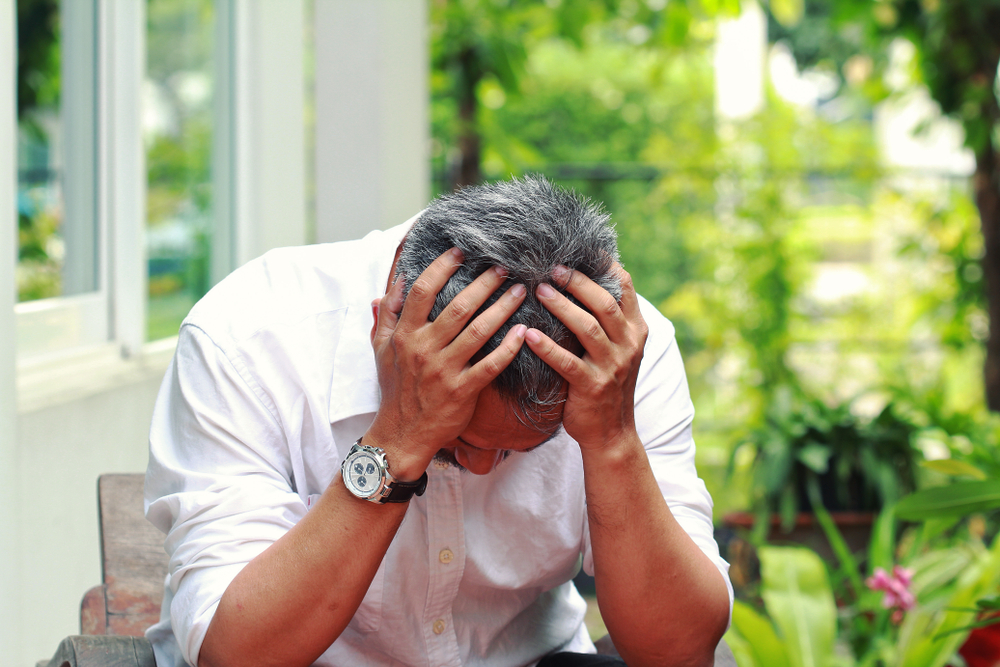What’s up, pals? Are you feeling a little agitated and off lately? Maybe you are tossing and turning in bed struggling to get a good night’s sleep or feeling irritable or moody for no apparent reason.
If you are a man in your 50s and experiencing these symptoms, you might be going through a midlife crisis, or some people call it male menopause.
That’s correct, just when you thought you had enough to worry about with your receding hairline and expanding waistline, your body decides to throw another curveball your way. But don’t worry guys, we are here to break down what menopause for men is, why it happens, and what can be done to manage it to get back to feeling like your youthful self.
Table of Contents
What is Male Menopause?
Male Menopause is a more common term to indicate andropause. It basically points towards age-related changes in male hormone levels. The symptoms are also known as androgen deficiency, late-onset hypogonadism, and testosterone deficiency.
Male menopause involves a drop in testosterone production in men who are aged 50 or older. It is oftentimes affiliated with hypogonadism. Both these conditions involve low testosterone levels and very similar symptoms.
If you are a man, testosterone is a hormone that is produced in your testes. It does more than fuel your sex drive. It also fuels your puberty, maintains muscle mass, regulates evolutionary features, fuels mental and physical energy, and regulates the fight and flight response of the body.
Male menopause is very different from female menopause.
Dr. Nighat Majeed who is a top general physician in Pakistan says that the first thing to notice is that male menopause doesn’t happen to every man. On the other hand, female menopause occurs in every female. In men, it is not a complete shutdown of the reproductive organs. However, sexual complications may arise as a result of the lowered hormone levels.
Symptoms of Male Menopause
Menopause for men has many symptoms. These can cause sexual, physical, and psychological problems. They typically get worse as you start to get older. These include
- Lowered self-confidence
- Decreased bone density
- Difficulty concentrating
- Insomnia or difficulty sleeping
- Reduced muscle mass and feeling of physical weakness
- Reduced libido
- Increased body fat
- Gynecomastia or the development of breasts
- Decreased motivation
- Infertility
Some other symptoms include tender breasts, loss of body hair, and hot flashes. Low levels of testosterone are also associated with osteoporosis. This is a condition in which your bones become brittle and weak These are although rare symptoms.
Read how to grow a beard fast to explore more.
Changes in Testosterone Levels Over the Years
Before you hit puberty, your testosterone levels are low. Then they start to increase as you are sexually mature. Testosterone is a hormone that fuels typical changes involved in male puberty such as
- Growth of body hair
- Changes in sexual functioning
- Growth of muscle mass
- Lowering of the voice
The best general physicians at Iqra Medical Complex say that, as you age, the levels of testosterone start to drop. There can be some health conditions that might be held possible for the drastic decline in testosterone levels.
Diagnosing Male Menopause
Your doctor can take a sample of your blood to test your testosterone levels. A blood test can confirm whether a man has low testosterone and if the treatment is needed or not.
One of the major treatment options available is testosterone replacement therapy. This might help in relieving symptoms like loss of sex drive, depression, and fatigue.
Unless menopause for men is causing you severe issues or disrupting your life, you will probably manage your symptoms without treatment. The biggest hurdle in treating male menopause may be talking to your doctor about the symptoms.
A lot of men are too shy or intimidated to discuss sexual topics with their doctors.
Treatment for Menopause in Men
The most common type of treatment for symptoms of male menopause is malkin healthy lifestyle choices. For example, your doctor might advise you to:
- Get regular exercise
- Reduce your stress
- Eat a healthy diet
- Get enough sleep
These lifestyle changes and habits can benefit all men. After adopting these habits men who are experiencing symptoms of male menopause might see a dramatic change in their overall health.
If you are experiencing depression, your doctor might prescribe antidepressants, therapy, and lifestyle changes.
Testosterone Replacement Therapy – Is it Worth a Shot?
Testosterone Replacement Therapy is done to bring the body back to a healthy range of testosterone which then slowly begins to reverse the symptom of low testosterone levels in the body. Once a steady baseline dose of testosterone has been established on testosterone replacement therapy, a lot of men notice an improvement in their energy levels, quality of life, and vitality.
But this doesn’t mean that testosterone replacement therapy works equally for everyone. It differs in results for everyone. It does come with its own side effects and can worsen sleep apnea which is a potential sleep disorder. Acne and other skin conditions also occur in people who try testosterone therapy.
So, always make sure to contact a general physician to make a decision on whether to go for testosterone replacement therapy for male menopause or not.
Read How to Sleep 8 Hours in 3 Hours to explore more.
When to Contact healthwire
Male Menopause is often not discussed openly and hence the treatment is often delayed. This can cause a number of issues in overall health and fitness. But, if you think the above-mentioned symptoms are what you are facing, then make sure that you book an appointment with the best general physician near you. You can do that by contacting healthwire.
